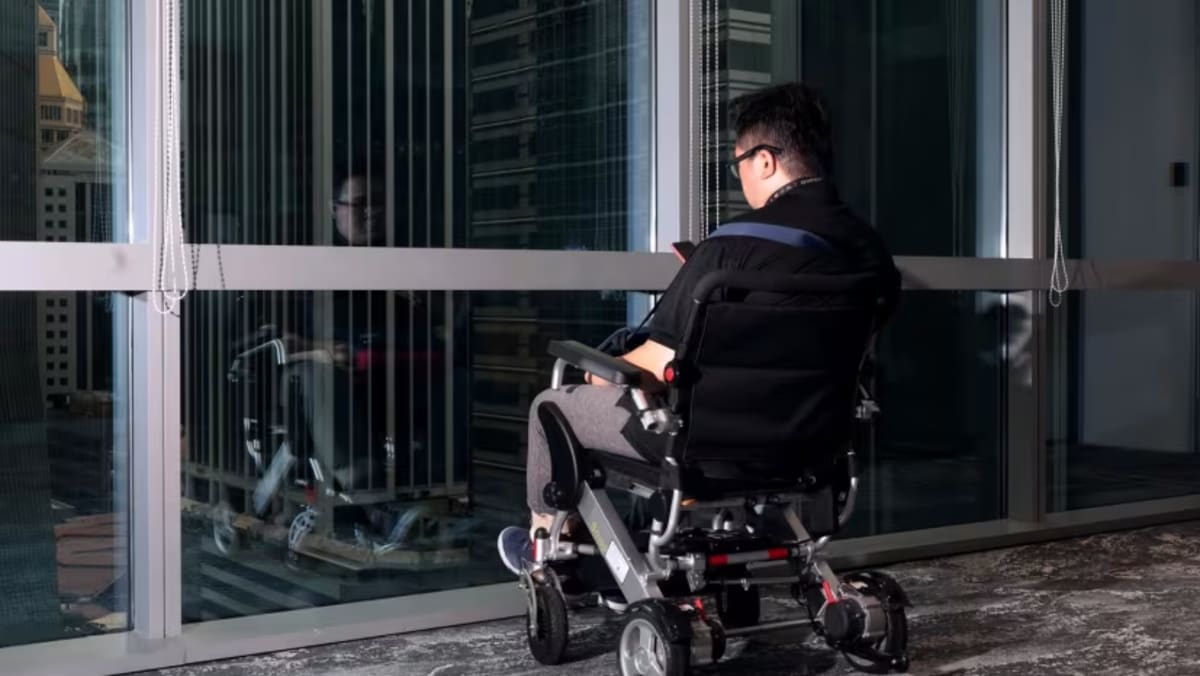Indeed, people with disabilities and advocates for them told TODAY that Singapore has made good progress in fostering a more inclusive workplace environment and boosting employment opportunities for people with disabilities.
They cited government grants and support, such as the Open Door Programme and the Enabling Employment Credit, as important initiatives that have helped boost inclusive hiring.
They also pointed to the Enabling Masterplan 2030, announced in 2022, which outlines a roadmap of 29 recommendations to support persons with disabilities.
The recommendations include a target of 40 per cent of people with disabilities to be employed by 2030, up from 31.4 per cent in 2022.
While some disability advocates said that this goal is both “ambitious” and “achievable”, they added that more needs to be done to increase employers’ awareness of disability to better integrate people with disabilities into the working world.
For example, the 40 per cent employment rate needs to be further unpacked to determine what constitutes being “gainfully employed”.
Referring to the current situation, Ms Cassandra Chiu, president of the Disabled People’s Association, wondered what proportion of people with disabilities who are employed are also underemployed, where they hold jobs that are way below their skill set.
“The challenges we face as persons with disabilities are to be given real jobs and not created jobs,” said Ms Chiu.
Beyond increasing the employment rate, disability advocates highlighted other challenges, such as career progression and mobility for persons with disabilities.
As Singapore marked Labour Day on May 1, TODAY looks at how workplace awareness has increased and how far mindsets have shifted when it comes to hiring persons with disabilities.
THE PROGRESS SO FAR
While there is still room for improvement, disability organisations and advocates said that Singapore has made strides in trying to level the playing field for people with disabilities in the workplace.
In Singapore, the prevalence of disability is 2.1 per cent of the student population, which is approximately 460,000.
For those aged 18 to 49, the prevalence of disability is at 3.4 per cent and it stands at 13.3 per cent of the resident population aged 50 and above.
Resident employment rate for persons with disabilities aged 15 to 64 has increased from 28.2 per cent in the period of 2018 to 2019 when such data was first collected, to 30.1 per cent from 2020 to 2021 and to 31.4 per cent between 2021 to 2022.
From 2018-2019 to 2020-2021, the nominal median gross monthly income from work (including employer Central Provident Fund contributions) of full-time employed persons with disabilities rose by 4.0 per cent from S$2,630 (US$1,940) to S$2,735.
Mr Nasrul Rohmat, executive director of My Inspiring Journey (MIJ) Hub, said: “Over the past years, there have definitely been more resources from the government and more employers who start to open up and want to employ those with special needs.”
MIJ Hub is a non-profit organisation that provides educational services for individuals with intellectual disabilities aged three to 30.
Ms Chiu, who is blind, added: “If we look at the last 20 years or so in terms of employment of persons with disabilities, I think there are a lot more schemes currently.”
She is also the executive director of K9Assistance, a charity promoting the use and acceptance of assistance dogs for people with disabilities in Singapore.
Ms Chiu remembers graduating with a Masters in Counselling in 2011 and how difficult it was to get a job as a school counsellor in public schools. When she finally got a job with a private firm counselling inmates at Changi Prison, she discovered that her salary was half that of her peers, at S$1,800 before Central Provident Fund deductions.
She was also not provided with a laptop equipped with accessibility software to do her work, so Ms Chiu had to bring her own to the workplace.
“I wasn’t able to do my job because there were attitudes or mindsets that a blind person could not do the job because it was dangerous or whatever the reason,” she said.
Mr Winston Wong, 35, who is hard of hearing, recalls how his first job in 2014 at a government body was rather unpleasant when he was tasked with taking minutes of its meetings.
Mr Wong lip-reads to communicate with people, which prevents him from multitasking and taking landline calls.
“I was forced to take meeting minutes because I was a fresh graduate, and to be honest, nobody wanted to do it,” he said.
When Mr Wong said he would not be able to do a good job, his manager insisted and partnered him with a colleague.
“Most of the meeting minutes were taken by the partner because it was very hard for me. I think my performance review was affected because of this,” said Mr Wong.







